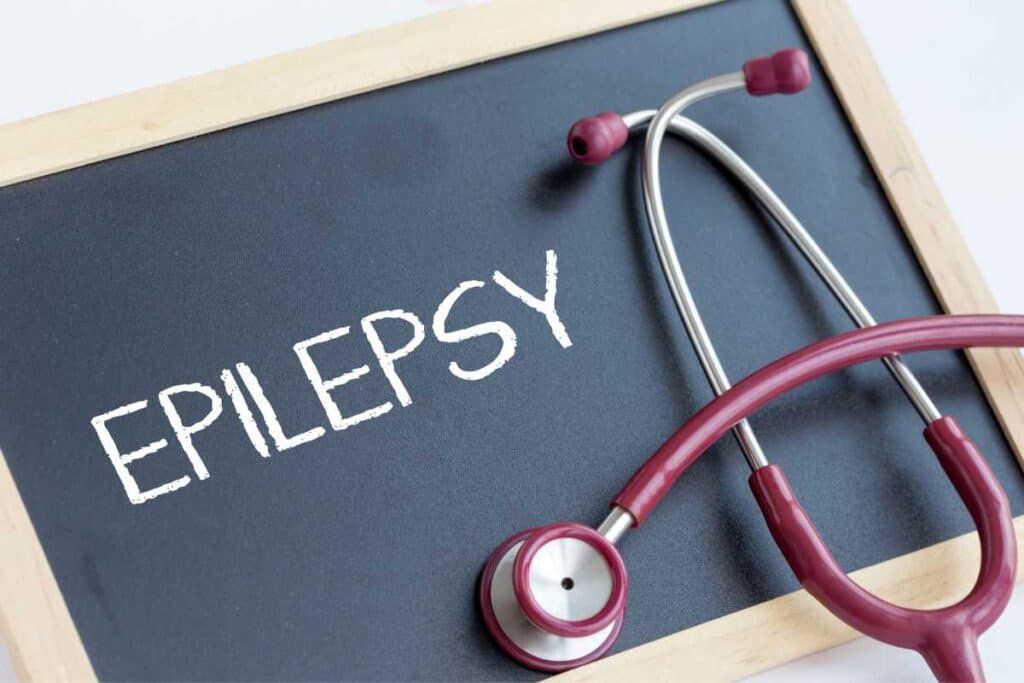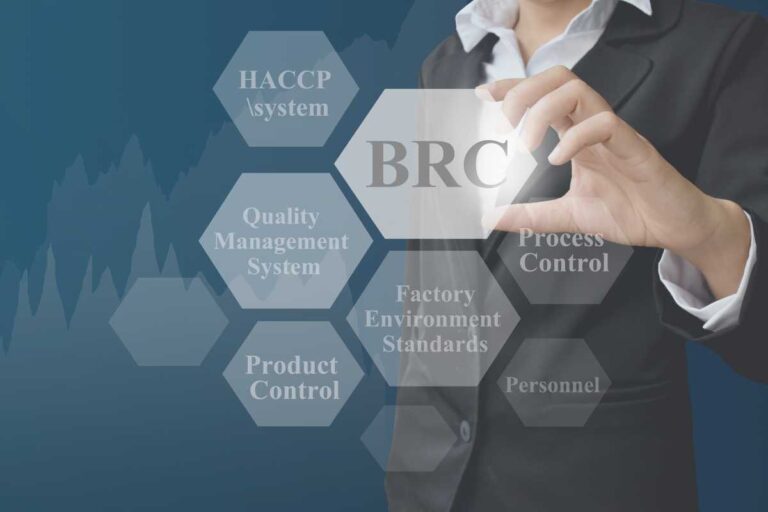Prophetic Remedies for Epilepsy: A Comprehensive Guide
Prophetic Remedies for Epilepsy: A Comprehensive Guide

The historical significance of prophetic medicine in the treatment of epilepsy is an intriguing topic that sheds light on traditional remedies and their relevance in modern healthcare practices.
Prophetic medicine refers to the healing methods and remedies mentioned in religious texts, specifically those attributed to the Prophet Muhammad (peace be upon him). Understanding this historical context provides valuable insights into alternative approaches for managing epilepsy.
Incorporating prophetic remedies into epilepsy management holds potential benefits worth exploring. The utilization of natural ingredients and holistic healing approaches aligns with the growing interest in complementary and alternative medicine.
By considering these traditional remedies, healthcare professionals can broaden their understanding of epilepsy treatment options and potentially enhance patient outcomes.
This blog post delves into the historical significance of prophetic medicine for epilepsy, highlighting its relevance to contemporary healthcare practices.
It explores the potential benefits of incorporating these remedies into epilepsy management, offering a fresh perspective on holistic approaches to treating this neurological disorder.
| Food | Benefits |
|---|---|
| Fish | Rich in omega-3 fatty acids, which may reduce seizures |
| Whole grains | Provide sustained energy and essential nutrients |
| Fruits | Contain antioxidants that may help protect the brain |
| Vegetables | Rich in vitamins and minerals for overall brain health |
| Nuts and seeds | Good source of healthy fats and antioxidants |
| Low-fat dairy | Provides calcium and vitamin D for strong bones and teeth |
| Lean meats | High in protein and important for muscle and brain health |
| Legumes | Good source of protein and fiber |
| Olive oil | Contains anti-inflammatory properties |
| Dark chocolate | Contains antioxidants and may improve mood |
“Explore our latest articles on Prophetic Medicine to discover simple, natural remedies that can improve your health. Check them out now and start feeling better!“
Understanding Religious Beliefs on the Causes and Treatment of Epilepsy
Epilepsy, a neurological disorder characterized by recurring seizures, has been a subject of inquiry for centuries. While medical advancements have shed light on its causes and treatments, religious beliefs also play a significant role in shaping people’s perceptions of this condition. We will discuss the influence of faith-based practices on managing seizures.
Examining Different Religious Beliefs
Religious beliefs offer diverse explanations for the causes of epilepsy. Some view it as a punishment or divine retribution for one’s actions or sins committed in this life or past lives.
Others attribute it to supernatural forces or spiritual entities affecting an individual’s well-being. These various interpretations highlight the significance of cultural and religious contexts in understanding epilepsy.
Perspectives on Appropriate Treatments
Religious communities often have distinct views regarding suitable treatments for epilepsy. Some believe that prayer, meditation, and seeking solace in their faith can alleviate symptoms and provide comfort to those affected by seizures.
They may turn to spiritual leaders or engage in rituals aimed at invoking divine intervention to heal the afflicted individual.
On the other hand, certain religious groups may consider medical interventions necessary alongside faith-based practices. They emphasize seeking professional medical advice while simultaneously relying on religious rituals as complementary approaches to managing epilepsy.
This integration allows individuals to address both physical and spiritual aspects of their condition.
The Influence of Faith-Based Practices
Faith-based practices can significantly impact how individuals manage their seizures within religious communities. For instance, adherents may incorporate dietary restrictions prescribed by their religion into their treatment plans.
Certain foods may be considered beneficial or harmful based on specific beliefs associated with epilepsy.
Moreover, faith-based support networks play a crucial role in providing emotional assistance and creating a sense of belonging among individuals with epilepsy. These communities often organize gatherings, support groups, and counseling sessions to help those affected cope with the challenges posed by their condition.
Sharing experiences, prayers, and religious rituals can foster a sense of hope and resilience.
The Role of Prophetic Medicine in Managing Epilepsy
Prophetic medicine offers a holistic approach to managing epilepsy, utilizing natural remedies and dietary changes that address the physical, mental, and spiritual aspects of an individual’s well-being.
By incorporating these principles into conventional medical treatments, individuals with epilepsy can potentially achieve better outcomes and improved quality of life.
Natural Remedies and Dietary Changes
One of the key aspects of prophetic medicine for epilepsy is the use of natural remedies. These remedies often include herbs, such as black seed oil or honey, which have been mentioned in various Islamic texts as having potential health benefits.
Certain foods are believed to possess healing properties that can help manage epilepsy symptoms. For example, consuming figs has been recommended due to their high potassium content, which may aid in reducing seizure frequency.
Holistic Approaches
Prophetic medicine emphasizes a holistic approach that takes into account not only the physical symptoms but also the mental and spiritual well-being of individuals with epilepsy.
This comprehensive perspective recognizes that epilepsy affects more than just the body; it impacts emotions, thoughts, and overall spiritual health. By addressing all these aspects together, individuals can experience a more complete healing process.
Complementing Conventional Medical Treatments
While prophetic medicine should not be seen as a replacement for conventional medical treatments for epilepsy, it can play a complementary role in enhancing overall management strategies. Integrating natural remedies and dietary changes alongside prescribed medications or therapies may lead to better control over seizures and improved overall health outcomes.
By combining traditional medical interventions with prophetic medicine practices like herbal remedies or dietary modifications, individuals with epilepsy can benefit from both approaches simultaneously.
It is crucial to note that any changes to treatment plans should always be discussed with healthcare professionals who specialize in treating epilepsy. They possess the necessary expertise to guide patients on how best to integrate prophetic medicine practices alongside mainstream treatments.
Ibn Qayyim al-Jawziyya’s Insights on Jinn and Epilepsy
Ibn Qayyim al-Jawziyya, a prominent Islamic scholar from the 14th century, provided valuable insights into the relationship between jinn possession and epilepsy. His works shed light on the spiritual aspect of this condition and offer recommendations for managing seizures while protecting against jinn interference.
Analyzing Ibn Qayyim al-Jawziyya’s Perspective on Jinn Possession as a Cause of Epilepsy
According to Ibn Qayyim al-Jawziyya, jinn possession can be one of the causes behind epilepsy. He believed that evil spirits, known as jinn, have the ability to afflict individuals with various ailments, including epilepsy. This perspective aligns with other scholars such as Ibn Taymiyyah who acknowledged the influence of jinn in causing illnesses.
Ibn Qayyim al-Jawziyya argued that jinn possess humans due to certain vulnerabilities like sins or weaknesses in faith. He emphasized that understanding this aspect is crucial for effective treatment. By recognizing the spiritual dimension of epilepsy, individuals can seek appropriate remedies beyond solely relying on medical interventions.
Discussing Ibn Qayyim al-Jawziyya’s Recommended Methods to Protect Against Jinn Interference and Manage Seizures
To protect against jinn interference and manage seizures associated with epilepsy, Ibn Qayyim al-Jawziyya proposed several methods rooted in Islamic teachings:
- Seeking refuge in Allah: According to his teachings, seeking refuge in Allah (God) through supplications and prayers can provide spiritual strength and protection against evil forces.
- Recitation of Quranic verses: The recitation of specific verses from the Quran is believed to have a powerful impact in warding off evil spirits. These verses are often recommended by scholars for individuals experiencing epilepsy.
- Adhering to righteous conduct: Ibn Qayyim al-Jawziyya emphasized the importance of leading a virtuous life and avoiding sinful behavior. This, he believed, would strengthen one’s spiritual resilience and reduce vulnerability to jinn possession.
- Seeking guidance from knowledgeable scholars: Consulting knowledgeable scholars or hakims who possess expertise in Islamic medicine can provide valuable insights and guidance for managing epilepsy with a holistic approach.
Highlighting the Significance of Spiritual Healing Alongside Medical Interventions
Ibn Qayyim al-Jawziyya emphasized that while medical interventions are essential for managing epilepsy, spiritual healing should not be overlooked. He advocated for a comprehensive approach that addresses both the physical and spiritual aspects of this condition.
By incorporating spiritual practices alongside medical treatments, individuals can find solace and peace in their journey towards recovery.
It is important to note that seeking professional medical advice is crucial when dealing with epilepsy, as it is a complex neurological disorder requiring specialized care.
Traditional Approaches to Epilepsy Treatment in Religious Communities
Investigating various traditional practices used by religious communities to treat epilepsy.
Religious communities around the world have long relied on traditional approaches to treat epilepsy. These practices often involve a combination of rituals, prayers, and cultural remedies that are deeply rooted within specific faiths.
While these treatments may differ across religions and regions, they share a common goal of providing relief and support to individuals living with epilepsy.
Discussing rituals, prayers, and other cultural remedies employed within specific faiths.
In many religious communities, rituals play a significant role in the treatment of epilepsy. For example, some cultures believe in performing cleansing ceremonies or exorcisms to rid the body of evil spirits thought to cause seizures.
These rituals often involve the participation of religious healers who possess specialized knowledge and skills in addressing spiritual ailments.
Prayers are another integral aspect of traditional treatments for epilepsy. Individuals and their families turn to prayer as a means of seeking divine intervention and healing.
Within religious communities, collective prayers are frequently conducted in places of worship or within the home environment. The power of prayer is believed to provide solace and strength during epileptic episodes while fostering a sense of hope for recovery.
Cultural remedies specific to certain faiths also find their place in treating epilepsy. For instance, herbal concoctions derived from plants with purported medicinal properties are prepared and administered as alternative treatments.
These remedies often reflect deep-rooted traditions passed down through generations within families or particular societal groups.
Recognizing diverse approaches while emphasizing their cultural significance.
It is essential to acknowledge that traditional approaches to epilepsy treatment vary significantly across different religions and societies. Each community has its own unique set of beliefs, customs, and practices surrounding healthcare.
While conventional medicine remains an important component in managing epilepsy, alternative treatments within religious contexts offer additional avenues for patients seeking holistic care.
Within these religious communities, family plays a crucial role in supporting individuals with epilepsy. Families often form focus groups to discuss and share experiences related to the condition. These groups provide emotional support, practical advice, and a sense of belonging for those affected by epilepsy.
The parallel system of traditional approaches to epilepsy treatment operates alongside conventional medicine in religious societies. While medical professionals and researchers continue to explore scientific advancements in epilepsy management, the cultural significance of traditional therapies cannot be overlooked.
They serve as a testament to the enduring resilience and faith communities place in their religious practices.
Exploring the Efficacy of Prophetic Remedies for Epilepsy
Epilepsy, characterized by recurrent epileptic fits or seizures, affects millions of people worldwide. While medical therapy has proven effective in managing this condition, there is growing interest in exploring alternative remedies, including those derived from prophetic medicine.
Scientific studies play a crucial role in understanding the potential benefits of prophetic remedies for epilepsy. Researchers have conducted numerous investigations to determine the effect of these therapies on patients with epilepsy.
One such study published on Google Scholar examined a sample group of individuals who had tried prophetic remedies alongside conventional medical treatments. The results revealed that a considerable number of participants reported a reduction in seizure frequency and intensity after incorporating these remedies into their daily routine.
While scientific studies provide valuable insights, anecdotal evidence also offers unique perspectives on the efficacy of prophetic remedies for epilepsy. Many individuals with epilepsy have shared their personal experiences online and within support groups, highlighting positive outcomes from using these alternative therapies.
Some claim that certain herbs or rituals recommended by prophets have helped them manage their seizures effectively.
It is important to acknowledge the limitations associated with assessing the efficacy of prophetic remedies due to individual variations among patients. Epilepsy is a complex condition influenced by various factors such as genetics, brain structure, and past life experiences or even possession beliefs held by some cultures. T
herefore, what may work for one person might not yield similar results for another. This variability poses challenges when attempting to establish a universal effect size or treatment protocol for prophetic remedies.
Integrating Spiritual and Medical Approaches for Better Epilepsy Management
Epilepsy, a neurological disorder characterized by recurrent seizures, can significantly impact an individual’s quality of life. While medical interventions play a crucial role in managing epilepsy, there is growing recognition of the benefits of integrating spiritual practices into treatment plans.
This article explores the potential advantages of combining prophetic medicine with modern medical approaches to enhance epilepsy management.
The Benefits of Combining Spiritual Practices with Medical Interventions
Complementary therapies that incorporate spiritual practices have shown promising results. By addressing the physical and psychological aspects of the condition, these holistic approaches offer a more comprehensive approach to care. Patients who engage in prayer, meditation, or other faith-based rituals often report reduced stress levels and increased feelings of peace. Such positive emotional states can contribute to better seizure control and overall well-being.
The Role of Faith-Based Support Systems in Improving Well-Being
In addition to their therapeutic effects, faith-based support systems can provide individuals with epilepsy a sense of belonging and community. Through religious gatherings or support groups, patients can connect with others facing similar challenges.
These networks foster empathy, understanding, and encouragement among members.
Furthermore, religious leaders within these communities can play a vital role in supporting individuals with epilepsy. They possess cultural knowledge and understandings that complement medical professionals’ expertise.
Collaboration between healthcare professionals and religious leaders allows for a more holistic approach to patient care. By acknowledging both medical treatments and spiritual beliefs, practitioners can address patients’ health concerns comprehensively.
Collaborative Efforts Between Healthcare Professionals and Religious Leaders
To ensure effective integration between spiritual practices and medical interventions in epilepsy management, collaboration between healthcare professionals and religious leaders is essential. Creating open lines of communication encourages dialogue about health beliefs while fostering mutual respect between different perspectives.
Healthcare professionals should actively seek opportunities to engage with religious leaders through workshops or seminars focused on transcultural psychiatry and mental health. These interactions can help bridge the gap between medical science and spiritual practices, leading to improved patient outcomes.
Conversely, religious leaders should be encouraged to expand their knowledge of epilepsy and its treatments. By gaining a deeper understanding of the condition, they can provide accurate guidance to individuals seeking spiritual support while managing their epilepsy.
Embracing Prophetic Medicine for Epilepsy Care
We began by understanding the religious beliefs surrounding the causes and treatment of epilepsy, highlighting the importance of a holistic approach that combines both spiritual and medical aspects.
Then, we delved into the role of prophetic medicine in managing epilepsy, emphasizing its historical relevance and continued relevance in modern times.
One key insight we discussed was Ibn Qayyim al-Jawziyya’s perspective on jinn and epilepsy, shedding light on how spiritual factors can intertwine with medical conditions. We explored traditional approaches to epilepsy treatment within religious communities, showcasing various remedies that have been passed down through generations.
Moreover, we examined the efficacy of prophetic remedies for epilepsy, considering both anecdotal evidence and scientific research.
To ensure comprehensive care for individuals living with epilepsy, it is crucial to integrate spiritual and medical approaches. By combining the wisdom of prophetic medicine with modern advancements in healthcare, we can provide holistic support to those affected by this condition.
It is important to consult qualified healthcare professionals who are knowledgeable about both conventional medicine and religious practices.
FAQs
Are prophetic remedies scientifically proven to treat epilepsy?
While there is limited scientific research specifically focused on prophetic remedies for epilepsy, some studies have explored their potential benefits. However, it is essential to understand that these remedies should not be considered as standalone treatments but rather as complementary approaches alongside conventional medical care.
Can embracing prophetic medicine replace conventional medical treatments?
No, embracing prophetic medicine should not replace conventional medical treatments for epilepsy. It is crucial to consult with healthcare professionals who can provide evidence-based guidance tailored to individual needs. Prophetic medicine can be integrated as a supplementary approach but should not substitute prescribed medications or professional advice.
How can I find reliable sources for prophetic remedies?
When seeking information on prophetic remedies, it is important to rely on credible sources. Look for reputable books written by well-known scholars in the field of Islamic medicine or consult with qualified practitioners who have expertise in both religious practices and healthcare.
Are there any dietary recommendations from prophetic medicine that can help manage epilepsy?
Prophetic medicine does offer some dietary recommendations that may be beneficial for overall health, but specific guidance regarding epilepsy management is limited. It is advisable to consult with a healthcare professional or a registered dietitian who specializes in epilepsy to develop an appropriate dietary plan.
Can spiritual practices alone cure epilepsy?
While spirituality plays a significant role in the lives of many individuals, it is important to remember that epilepsy is a medical condition that requires comprehensive care. Spiritual practices alone are unlikely to cure epilepsy, and it is crucial to seek medical advice and adhere to prescribed treatments for effective management.
Remember, always consult with healthcare professionals regarding your individual circumstances and seek evidence-based approaches when managing epilepsy.







